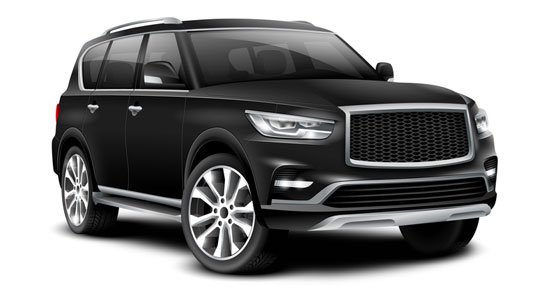Need a New Business Vehicle? Consider a Heavy SUV
- Learn about bonus depreciation on business vehicles acquired and put into service in 2021.
- Find out more about the weight requirement for this bonus depreciation.
- Learn about adjustments for non-business use.
Are you considering buying or replacing a vehicle that you’ll use in your business? Thinking about a heavy sport utility vehicle (SUV)? Then, you may be able to benefit from lucrative tax rules for your new business vehicle. Want to know the ins and outs of these tax rules before you shop? Fiducial has more info below!
Bonus depreciation on a business vehicle
Under current law, 100% first-year bonus depreciation is available for qualified new and used property that’s acquired and placed in service in a calendar year. New and pre-owned heavy SUVs, pickups and vans acquired and put to business use in 2021 qualify for 100% first-year bonus depreciation. The only requirement is that you must use the vehicle more than 50% for business. Is your business usage is between 51% and 99%? Then you can deduct that percentage of the cost in the first year you place the vehicle in service. This generous tax break applies to qualifying vehicles acquired and placed in service through December 31, 2022.
The 100% first-year bonus depreciation write-off will reduce your federal income tax bill and self-employment tax bill, if applicable. You might get a state tax income deduction, too.

Weight requirement
This option is available only if the manufacturer’s gross vehicle weight rating (GVWR) is above 6,000 pounds. You can verify a vehicle’s GVWR by looking at the manufacturer’s label, usually found on the inside edge of the driver’s side door where the door hinges meet the frame.
Note: These tax benefits are subject to adjustment for non-business use. And if business use of an SUV doesn’t exceed 50% of total use, the SUV won’t be eligible for the expensing election, and would have to be depreciated on a straight-line method over a six-tax-year period.
Detailed, contemporaneous expense records are essential — in case the IRS questions your heavy vehicle’s claimed business-use percentage.
That means you’ll need to keep track of the miles you’re driving for business purposes, compared to the vehicle’s total mileage for the year. Recordkeeping is much simpler today, now that there are apps and mobile technology you can use. Or simply keep a small calendar or mileage log in your business vehicle and record details as business trips occur.
If you’re considering buying an eligible business vehicle, doing so and placing it in service before the end of this tax year could deliver a big write-off on your 2021 tax return. Before signing a sales contract, consult your Fiducial representative to help evaluate the right tax moves for your business.
Call Fiducial at 1-866-FIDUCIAL or make an appointment at one of our office locations to discuss your situation.
Ready to book an appointment now? Click here. Know someone who might need our services? We love referrals!
For more small business COVID-19 resources, visit Fiducial’s Coronavirus Update Center to find information on SBA loans, tax updates, the Paycheck Protection Program, paid sick and family leave, and more.









